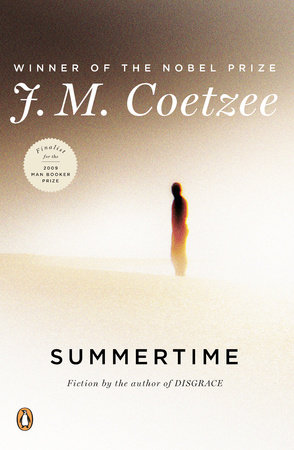READERS GUIDE
Questions and Topics for Discussion
INTRODUCTION
With Summertime, Nobel Prize-winning novelist J. M. Coetzee has delivered one of the most profound and searching books of his extraordinary career—a meditation on identity and love, an unrelenting exploration of the personal and spiritual costs inherent in the making of art, and a cunning pseudo-autobiography.
Coetzee has a reputation as a bold and inventive novelist, and Summertime bears that out in its innovative structure. Rather than a straightforward narrative, the book comprises interviews conducted by Mr. Vincent, a fictional biographer who is writing a book about a deceased writer named John Coetzee. This meta-fictional framing device works brilliantly as Vincent’s successive interlocutors reveal their versions of the man at the center of the book and behind the book.
The portrait that emerges from these overlapping perceptions is often shockingly unflattering. The women characters are at times venomous in their contempt for Coetzee’s passivity and detachment. He is called “soft,” “radically incomplete,” “an irritation,” with “something cool or cold about him”; he “did not have a strong presence” and “wasn’t made for love.” When challenged to defend him, even Vincent can only offer weakly that he was “dogged” and “had a steady gaze.” Why, the reader asks, would the author go to such lengths to present such a negative picture? Is he being ruthlessly honest or is there some kind of game being played here? At the very least, a comical figure emerges. Awkward moments of physical and romantic ineptitude show that the author is capable, in his wry way, of laughing at himself even while contemplating mortality and the difficult question of whether we can ever truly know someone else.
ABOUT J.M. COETZEE
J. M. Coetzee is the author of Waiting for the Barbarians, Slow Man, Disgrace, Diary of a Bad Year, and many other books of fiction, memoir, and essays. He has twice received the Booker Prize and is the winner of the 2003 Nobel Prize in Literature. Summertime was a finalist for the 2009 Booker Prize. He was born in Cape Town, South Africa, and currently lives in Adelaide, Australia.
DISCUSSION QUESTIONS




















